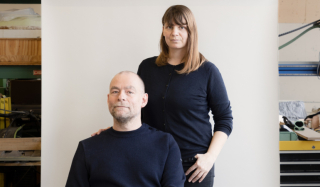Recognized for their capacity of innovation, the Walloon companies are more and more involved in the framework of major sporting events. For example, numerous cutting edge technologies developed in Wallonia will be used during the Football World Cup in Brazil. Let us take a closer look at the Liège company EVS.
EVS was established 20 years ago and has, over the years, become the world leader in the development of solutions for live sporting event production for television. Known for this expertise, EVS has also diversified into other business and production for televisions, such as entertainment shows and news.
Already present at major sporting events for over 10 years, EVS will also showcase its products in Brazil, where they will be used at the heart of the live production infrastructures, as well as for a whole host of other purposes. More specifically, the leasing agreement (worth 7-8 million euros) signed with HBS (a company mandated by FIFA to organise the event's TV coverage) will include the provision of video servers and a whole range of applications (slow motion, summaries, etc.) at each of the 12 stadiums, as well as at the major international press centre in Rio.
Once images have been filmed at stadiums, they will be sent to the press centre (International Broadcast Center), which will cater for the many television channels covering the event. There, the highlights of each match will be identified with the addition of key words, and everything will be stored on systems provided by EVS, the content accessible to journalists present. Furthermore, EVS' solutions will be used as a central platform for processing the images collected by the crews of FIFA reporters, and as the starting point for the different FIFA events programmes.
New in Brazil: the multimedia platform proposed by FIFA to television stations will be based on EVS technologies. TV viewers will thus have the chance to watch match highlights very soon after they happen, from about 20 different viewing angles. Similarly, several cameras will be accessible simultaneously for "live streaming" via the application which has now been purchased by more than 80 countries.
After February's Sochi Winter Olympics, this is the second world event with which EVS has become closely involved this year. The reliability of its solutions and the excellent quality of its service (over 30 people will be on site to provide support during the event) have made EVS a key partner for major sports federations.








